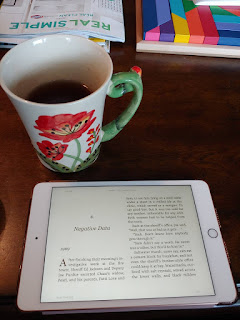Lab Girl
 Lab Girl by Hope Jahren is an eloquent, passionate look at plant biology, friendship and what happens when you are able to apply "your heart and your hands" to your work. Hope effortlessly weaves together the story of the life of a plant with her own life as a very successful female scientist. She writes of the struggles and the triumphs, and she goes through it all with her "12 year old fraternal twin"/lab manager/best friend Bill.
Lab Girl by Hope Jahren is an eloquent, passionate look at plant biology, friendship and what happens when you are able to apply "your heart and your hands" to your work. Hope effortlessly weaves together the story of the life of a plant with her own life as a very successful female scientist. She writes of the struggles and the triumphs, and she goes through it all with her "12 year old fraternal twin"/lab manager/best friend Bill.Although I enjoyed this book tremendously, it was not quite what I was expecting. It is definitely geared toward a general audience and the parts about plants are brilliant and poetic. Hope also discusses the trials and tribulations of a life in science, but as a woman in science I would have liked to hear a bit more specifics about the struggles she went through with grant funding, sexism, frustration when things don't work out. Hope paints a very vivid picture of the early years when both her and Bill and extremely poor and trying to set up a lab, but I would have liked to hear a bit more about finally getting that first grant, and also a little bit more about the actual experiments she performs. However, these comments are coming specifically from someone who works in a lab and probably would not be an issue to the general audience.
Most of all this book is a love story, a love story to plants, a love story to friendship, a love story to love and family. It is full of poetic wisdom and glorious misadventures. I would highly recommend this book, and if you have already read it and loved it I would recommend Pilgrim at Tinker Creek by Annie Dillard, which is another brilliant, poetic manifesto on the natural world.


Comments
Post a Comment